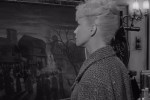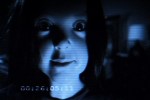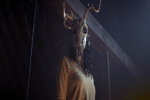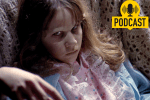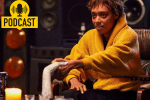WHAT IS HORROR HOMEROOM?
This website will focus on horror in all its forms (fiction, film, TV). We’ll be reviewing new horror film and TV as well as posting both sustained and briefer pieces that make the case for what’s interesting about current and classic horror. We’ll also be offering “Top 10 Lists” if you’re looking for something to watch! We all have particular interests at the moment (these may change!): the tradition of the “final girl” (Liz), creepy children and family horror (Gwen) and eco-horror and zombies (Dawn), but, basically, we all love pretty much all horror and want to express it, talk about /why/ we love it, and share why we think so much of the horror tradition is worth not just watching (or reading) but worth examining. So, we’ll indulge in bursts of enthusiasm for particular films or shows or books as well as engaging in more lengthy and (hopefully) more thoughtful discussions. Fictional horror has been around for so long for a reason (actually, many reasons)—and this blog will be thinking about why.
CONTACT US at horrorhomeroom@gmail.com –or you can email one of the editors (Dawn Keetley) directly at dek7@lehigh.edu
WHO WE ARE
Listen to our picks for the Top Ten Horror Films of all time!
Dawn Keetley teaches American literature and gothic / horror in all its forms (fiction, film, TV) at Lehigh University. She has most recently published in Horror Studies, Journal of the Fantastic in the Arts, the Journal of Popular Television, the Journal of Film and Video, and Gothic Studies. She is the editor of We’re All Infected: AMC’s The Walking Dead and the Fate of the Human (McFarland, 2014) and the co-editor (with Elizabeth Erwin) of a second collection, Race, Gender and Sexuality in The Walking Dead (McFarland, 2018). She is the co-editor (with Angela Tenga) of Plant Horror: Approaches to the Monstrous Vegetal in Fiction and Film (Palgrave, 2016) and (with Matthew Wynn Sivils) of The Ecogothic in Nineteenth-century American Literature (Routledge, 2017). Her monograph, Making a Monster: Jesse Pomeroy, the Boy Murderer of 1870s Boston, was published by the University of Massachusetts Press in 2017. Keetley is working on essays on ecohorror and on the contemporary horror film as well as a monograph on folk horror, under contract with the University of Wales Press, and a collection of essays on Jordan Peele’s Get Out under contract with the Ohio State University Press. Dawn’s top ten list of horror films. You can find her website here.
Elizabeth Erwin was raised on a steady diet of ABC soap operas, Sweet Valley High books, and 1940s horror. This left her with an affinity for big hair and dramatic monologues. She has written and presented extensively on horror film and popular culture and is currently exploring video essay development and production. She is co-editor (with Dawn Keetley) of The Politics of Race, Gender and Sexuality in The Walking Dead: Essays on the Television Series and Comics (McFarland, 2018) and has written for The Gay & Lesbian Review Worldwide, Entertainment Weekly, and Gayly Dreadful. Her ongoing digital humanities project, When the Woman Screams, examines the horror film scream as an intersectional site of cultural resistance. She still thinks Betty White was robbed of an Academy Award for her turn in Lake Placid (1999).
Gwen Hofmann is currently pursuing a History PhD. Her academic focus is 20th Century cultural history with a focus on popular culture. Gwen’s passion is examining representations of gender and family in American popular culture. Horror films are her life long mistress, somewhat illicit, always exciting, and just a little dirty. She appreciates watching a movie and analyzing the film for underlying social commentary. Gwen’s favorite decade of horror is the 1980s and if you look at her current top 10 favorite horror films of all time (in chronological order), you might learn a little more about her.
Sometimes we include links to products on Amazon within articles, if they are relevant to the content. If you click on one and make a purchase we may receive a small fee. It’s only small but every little helps to keep our lights on.


